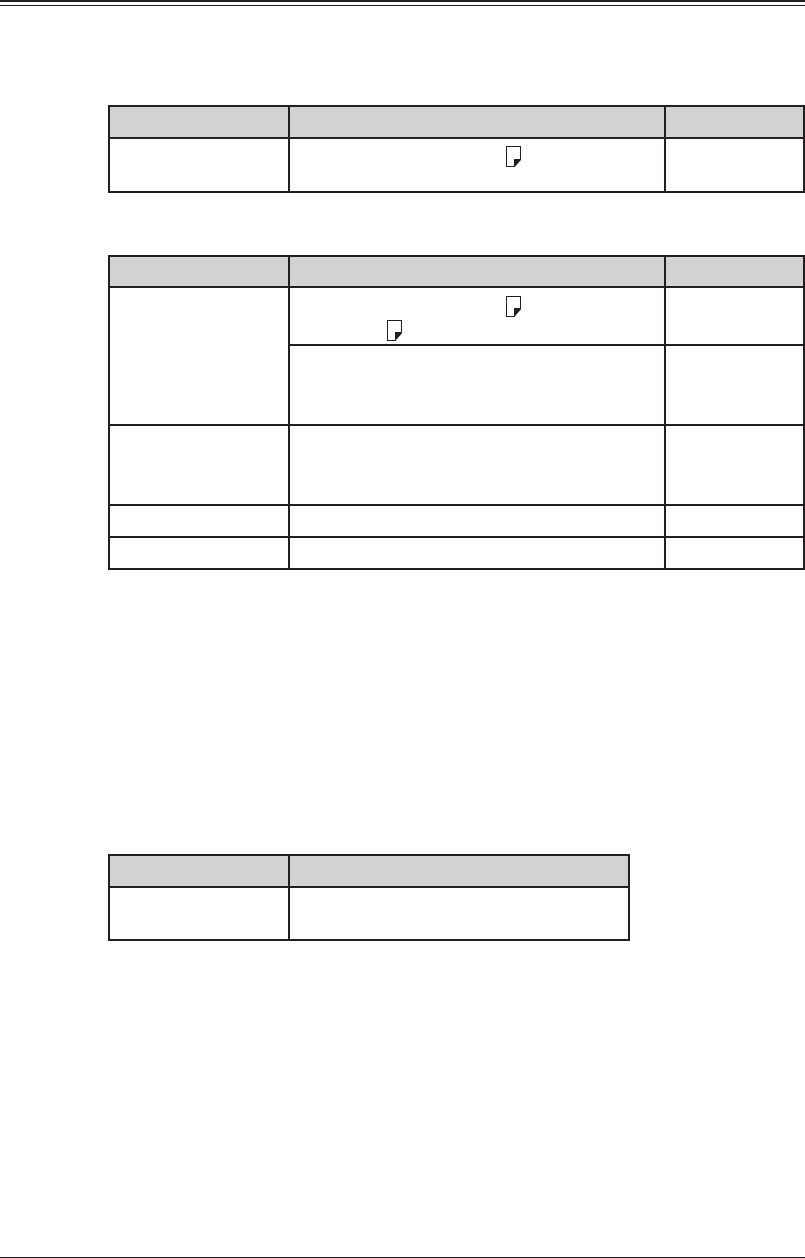
1-26 GETTING STARTED
Paper handling
Acceptable paper sizes
Paper cassette
Paper type Paper size Quantity
Plain paper
(weight: 20–24 lbs.)
Letter, Legal, Half-letter
500 sheets
(weight: 20 lbs.)
Bypass tray
Paper type Paper size Quantity
Plain paper
(weight: 20–28 lbs.)
Letter, Legal, Half-letter , Executive
A4, A5, A5 , A6, F4,
50 sheets
(weight: 20 lbs.)
Custom sizes
• Width: 3.8 to 8.5 in. (97 to 216 mm)
• Length: 5.5 to 14 in. (140 to 356 mm)
1 sheet
Envelopes DL: 4.33 × 8.66 in. (110 × 220 mm)
Com#10: 4.125 × 9.5 in. (105 × 241 mm)
Monarch: 3.875 × 7.5 in. (98.4 × 190.5 mm)
1 envelope
Postcard 3.94 × 5.83 in. (100 × 148 mm)
20 sheets
Transparency Letter 20 sheets
• Custom-sized paper can be used for PC printing only.
• Do not use envelopes with double flaps or pressure seals since these do not feed
properly.
• If using a transparency (OHP) film, be sure that the film does not have a paper
backing and/or leading strip. If it does, remove the paper backing and/or strip
before loading. Only the film should go in, film with paper backing or a leading
strip should not be fed.
Duplex printing
The duplex printing unit is required in order to perform two-sided printing.
Paper type Paper size
Plain paper
(weight: 20–24 lbs.)
Letter, Legal, A4, F4
Paper to avoid:
To prevent jams and damage to your machine, do not use the following:
• Creased paper • Very thick paper
• Wrinkled paper • Paper previously printed on by a printer
• Folded paper • Paper with holes
• Curled paper • Envelopes with pressure seals
• Torn paper • Extremely shiny or highly textured paper
• Carbon paper
• Moist paper
• Very thin paper


















